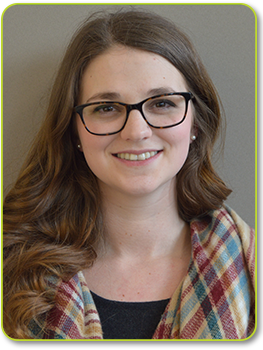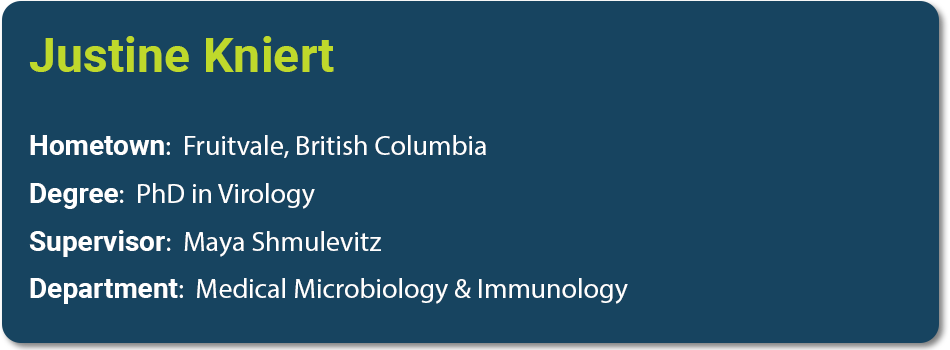2022 Doctoral Student Award


Project title: Investigating the assembly mechanisms of mammalian orthoreovirus 3
How would you describe your research project to someone without a scientific background?
Ultimately, I am trying to understand how viruses work at the cellular level. When you are infected with a virus, that virus needs to make copies of itself that then go on to infect more cells. But how does the virus coordinate the assembly of all of its “pieces” inside the cell? A similar example would be finding a needle in a haystack if there are not some sort of coordinated mechanisms at play. Although mechanisms may differ between viruses, reovirus is the model virus I am working with.
What impact do you hope this project makes once completed?
I hope that this project helps to shed light on unknown mechanisms of viral assembly. If we can better understand how viruses “work”, we can then develop targeted therapeutics against pathogenic viruses or better use non-pathogenic viruses as tools in medicine. As an example, reovirus is currently used as an anti-cancer treatment. Our lab has identified mutations in specific viral proteins that enhance cancer killing, but we do not know exactly how they work. If we can understand how these mutations might be enhancing viral assembly, then we can use that to our advantage.
How will the support from Li Ka Shing Institute of Virology help you?
Beyond direct stipend support, awards from the Li Ka Shing Institute of Virology have made me feel extremely welcome and valued in our department. And by feeling valued as a research student, I feel even more motivated in my work to become further involved with the department even outside of research.
When did you realize you wanted to pursue a degree / career in science?
I don’t think I’ve ever truly thought about pursuing anything else. Even in elementary school, I LOVED science and math class (to the point I would cry when they were over). I always knew I would pursue a career in science. Though it wasn’t specifically research that caught my attention until I got involved in an honours research program during my fourth year of undergrad at UBC Okanagan. There, I found my passion in the lab by being able to ask questions and directly answer them through experimentation.
What was the greatest lesson you learned while doing your research?
The greatest lesson I’ve learned through research—that applies now to my entire life—is learning to accept failure and when to let go of something that is no longer working for me. Even though I still struggle with it from time to time, it’s an important life skill to develop.
What is your favorite distraction (hobby)?
Video and board games! All kinds, but Pokémon will always be my all time favorite.
What is one thing you cannot live without?
My cats. I feel like my world was missing a piece before I adopted them, and now that I have them, I can’t imagine life without them.